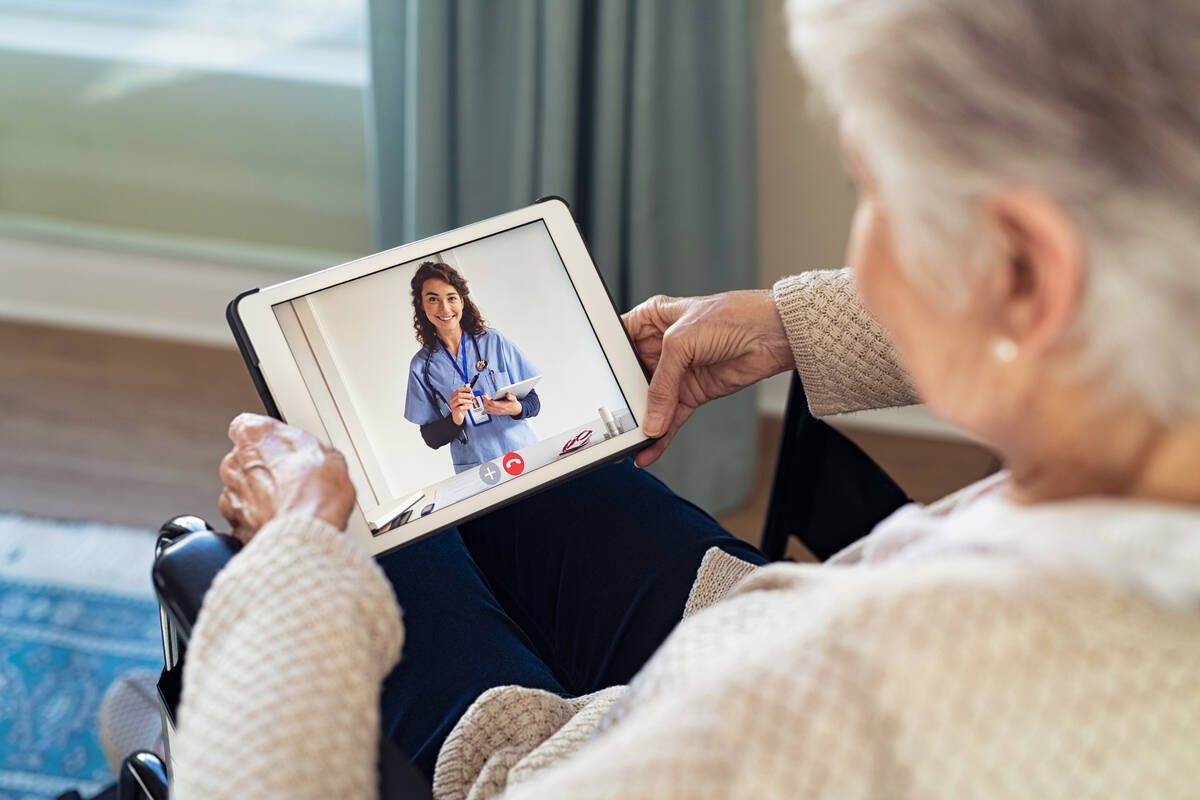How will changes in Medicare’s telehealth coverage affect me?
Dear Toni: I have been researching the changes to Medicare’s telehealth services. I am concerned because my mother lives in an assisted living facility and her primary care doctor uses the telehealth computer service, so I do not have to take my mother, who uses a wheelchair, to the doctor by a health care taxi service or an ambulance.
Since the pandemic, this type of care has been approved by her Medicare Advantage HMO.
The social worker at my mother’s living facility suggested that I contact her Advantage plan to discuss whether it has any house call physicians who can accept her as a patient. Is this something that Medicare or her Medicare Advantage plan will pay for?
Should I consider changing my mother to original Medicare with a supplement? — Sheila, Little Rock, Arkansas
Dear Sheila: Last week Medicare changed the date when telehealth services will be available only locally and in rural areas. Through Sept. 30, you can get telehealth services at any location in the U.S., including your home. According to the Medicare.gov website: “Starting Oct. 1, 2025, you must be in an office or medical facility located in a rural area (in the U.S.) for most telehealth services.”
The website also states that, if you aren’t in a rural health care setting, you can still get certain Medicare telehealth services on or after Oct. 1, including:
■ Monthly end-stage renal disease visits for home dialysis.
■ Services for diagnosis, evaluation or treatment of symptoms of an acute stroke, including in a mobile stroke unit.
■ Services for the diagnosis, evaluation or treatment of a mental or behavioral health disorder (including a substance use disorder) in your house.
You should ask your mother’s primary care physician or Medicare Advantage plan’s health care provider which house call or accountable care organization (ACO) they are contracted with.
Not only are doctors making house call visits, but dentists, eye doctors and even mobile X-ray/ultrasound technicians are visiting nursing homes, assisted living facilities and personal care homes, just like they were before the COVID-19 pandemic.
A house call physician visit can keep a minor ailment from turning into a major health care issue.
Doctor or medical provider visits by house-call services — whether at home or at a long-term care facility such as a nursing home or assisted living facility — are being accepted and paid for by original Medicare, original Medicare with a supplement and Medicare Advantage plans (if the provider is in network).
Sheila, you are wise to look at all of your mother’s options regarding disenrolling from her Medicare Advantage plan with her serious health issues. Many people do not realize that they must qualify medically to be approved for a Medicare supplement.
Toni King is an author and columnist on Medicare and health insurance issues. If you have a Medicare question, email info@tonisays.com or call 832-519-8664.



















